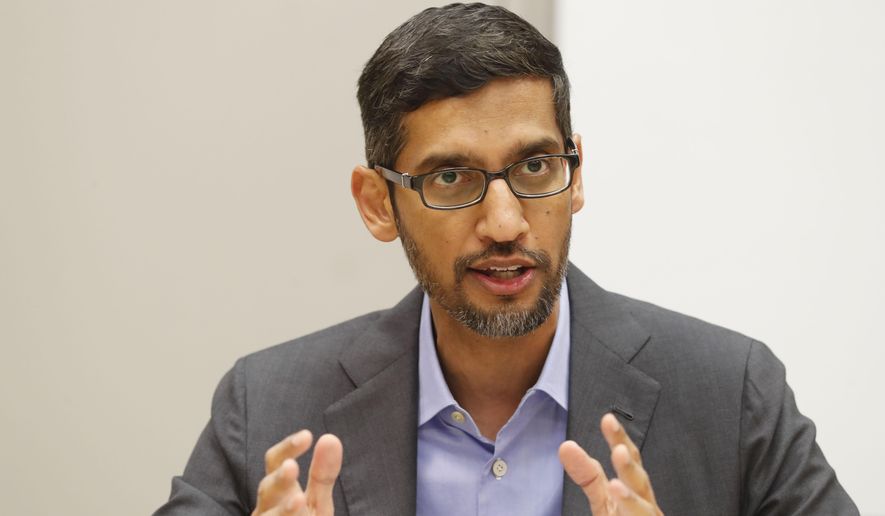Google CEO Sundar Pichai said he’s worried that changes to legal liability protections for tech platforms would restrict free speech and companies’ ability to protect their users.
In testimony to the House Energy and Commerce Committee, Mr. Pichai said Google is not on board with scrapping Section 230 of the Communications Decency Act, which protects companies including Google from legal liability for content posted by their users.
“Regulation has an important role to play in ensuring that we protect what is great about the open web, while addressing harm and improving accountability,” Mr. Pichai said in testimony to the committee published on its website. “We are, however, concerned that many recent proposals to change Section 230 — including calls to repeal it altogether — would not serve that objective well. In fact, they would have unintended consequences — harming both free expression and the ability of platforms to take responsible action to protect users in the face of constantly evolving challenges.”
Google’s position stands in stark contrast to Facebook. Both Mr. Pichai and Facebook CEO Mark Zuckerberg are set to testify before the Energy and Commerce Committee on Thursday, but Mr. Zuckerberg has advocated overhauling Section 230.
In his testimony to the committee, Mr. Zuckerberg pushed Congress to make legal liability protections for tech platforms conditional upon the platforms’ ability to censor unlawful speech.
Mr. Zuckerberg made clear he did not want to have the responsibility for determining what constitutes unlawful or harmful speech under new policy from the federal government.
“Congress should act to bring more transparency, accountability, and oversight to the processes by which companies make and enforce their rules about content that is harmful but legal,” Mr. Zuckerberg said to the committee in his testimony. “While this approach would not provide a clear answer to where to draw the line on difficult questions of harmful content, it would improve trust in and accountability of the systems and address concerns about the opacity of process and decision making within companies.”
Twitter CEO Jack Dorsey, who is set to testify alongside Mr. Pichai and Mr. Zuckerberg on Thursday, made fewer comments on potential policy from Congress in his testimony. Mr. Dorsey said he agreed with the committee’s conclusion that tech companies such as Twitter need to earn users’ trust and said Twitter supports “efforts to pass strong federal privacy legislation to safeguard important privacy rights.”
• Ryan Lovelace can be reached at rlovelace@washingtontimes.com.




Please read our comment policy before commenting.